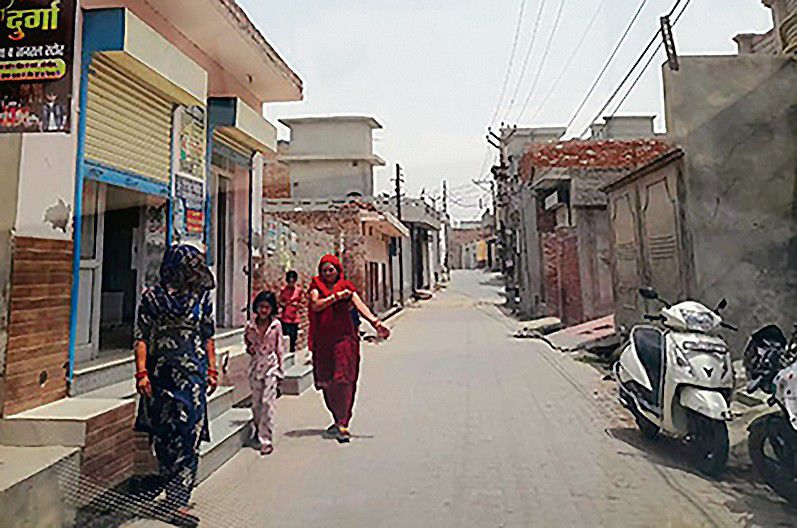Heart of Haryana: Love pays price in blood as villages turn killing fields for clan honour
Geetanjali Gayatri
In Kaithal, a 17-year-old boy’s vitriolic five-minute video statement switched between the choicest abuses and threats to kill anybody who dared to depose against him after he shot his own sister for marrying into a lower caste. In Hansi, a newly married couple was shot dead in a park because the girl’s family did not approve of the marriage, though it did not violate any societal norms. Further ahead on the route where criss-crossing highways have changed the face of rural Haryana, in Sirsa, a man has no remorse for strangling his daughter, with the help of his son, for falling in love with a boy from an economically weaker background.
These cold-blooded murders by family members underline the malaise in this patriarchal society where honour is a cross that girls have to bear and there is no place for love, whether or not it violates the social norms.
With no separate law to deal with honour killings, which are essentially treated as murders, and a strong village community network that “guards” these secrets well, there are hardly any witnesses ever, leading to a poor rate of conviction.
“Though there is a sudden spurt in the cases, it is likely that such incidents mostly went unreported or remained hidden in the past. Some of these cases are surfacing now. In Dhauj village in Faridabad, a girl who eloped with a boy died and was buried by her mother and her brother in the house compound,” says sociologist Neerja Ahlawat.
She adds that in rural Haryana, the lives of the youth are governed by well-defined dos and don’ts, under which marriages in same gotra, same village, neighbouring village or inter-caste marriages are a big no. Then again, a girl marrying into a lower caste is not acceptable since it dents the honour of the family.
“On the other hand, the youth are moving out of their homes for studies, interacting openly and getting influenced by the social media — leading to increased exposure and therefore, resistance,” she maintains.
All India Democratic Women’s Association (AIDWA) chief Jagmati Sangwan, who has been closely associated with women’s issues in Haryana, says that a separate law to deal with cases of honour killing can serve as a deterrent. “The accused are tried for murder and the cases go on for years. Also, there are no witnesses in such cases. This further favours the accused and the crime goes on unchecked,” she said.
The khaps — the caste panchayats of rural Haryana — which lay down the norms that govern lives and wield considerable influence in villages, are quick to distance themselves from honour killings as something “very personal” to the families. Though they decry them as “dishonourable”, not much is being done to build a movement against them. “We try to create awareness from time to time but parents associate honour with the girl of the family. Killing anybody is wrong and the khaps never advocate such an extreme step. At the most, they convey their displeasure to the family and ask the couple concerned to move out of the village. I can say with certainty that no honour killing has happened in the last 30 years in the Sangwan cast,” claims Narsingh Sangwan of the Sangwan khap.
Khazan Singh Sangwan, a retired professor from Maharishi Dayanand University, Rohtak, says that though honour killings are taking place in Haryana, there has been a sea change in the thinking of the Haryanvis. “The girls and boys are mixing in society, the urban population has opened up to the world and patriarchy is no longer as rigid as it was. The change is coming about slowly in rural Haryana, and it is only a matter of time before this horror ends,” he insists.









